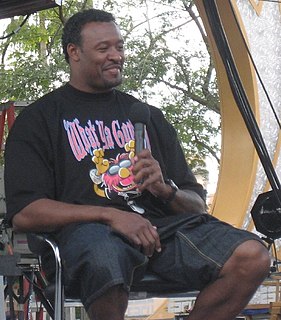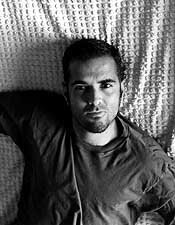A Quote by Eckhart Tolle
Every individual is in touch with the deeper level of being, the aware consciousness. If these humans form groups, they do not derive their sense of self from the group, which does not mean there cannot be a sense of being part of this group. But the group itself does not become an egoic entity.
Related Quotes
Belonging to a group can provide the child with a variety of resources that an individual friendship often cannot--a sense of collective participation, experience with organizational roles, and group support in the enterprise of growing up. Groups also pose for the child some of the most acute problems of social life--of inclusion and exclusion, conformity and independence.
When you sing with a group of people, you learn how to subsume yourself into a group consciousness because a capella singing is all about the immersion of the self into the community. That's one of the great feelings - to stop being me for a little while and to become us. That way lies empathy, the great social virtue.
Historians constantly rewrite history, reinterpreting (reorganizing) the records of the past. So, too, when the brain's coherent responses become part of a memory, they are organized anew as part of the structure of consciousness. What makes them memories is that they become part of that structure and thus form part of the sense of self; my sense of self derives from a certainty that my experiences refer back to me, the individual who is having them. Hence the sense of the past, of history, of memory, is in part the creation of the self.
One has to give minority groups a kind of reward, an emotional reward, that it is worthwhile assimilating to this particular majority group. And if this majority group looks down on itself ... If a minority group is not given some pride in assimilating to the culture of another group then the process is very difficult.
Exhibitions of minority art are often intended to make the minority itself more aware of its collective experience. Reinforcing the common memory of miseries and triumphs will, it is expected, strengthen the unity of the group and its determination to achieve a better future. But emphasizing shared experience as opposed to the artist's consciousness of self (which includes his personal and unshared experience of masterpieces) brings to the fore the tension in the individual artist between being an artist and being a minority artist.
But the problems of perpetuating a hierarchical society go deeper than this. There are only four ways in which a ruling group can fall from power. Either it is conquered from without, or it governs so inefficiently that the masses are stirred to revolt, or it allows a strong and discontented Middle group to come into being, or it loses its own self-confidence and willingness to govern.
When you meet another human being, you meet the physical self, then you meet the psychological self that's behind it, which is their mental conditioning, their patterns of behavior and so on. And then, there is a deeper level to every human being that transcends all of that. I can only sense that in another human being and relate to another human being on that deeper level if I have gone deep enough within myself.
I always worked as an individual artist even when Group Material asked me to join the group. There are certain things that I can do by myself that I would never be able to do with Group Material. First of all, they are a totally democratic entity and although you learn a lot from it, and it's very moving, it's very exacting, everything has to be by consensus, which is the beauty of it, but it is much more work. It's worth it 100%. But as an individual artist there are certain things that I want to bring out and express, and the collaborative practice is not conducive to that.
Any group or "collective," large or small, is only a number of individuals. A group can have no rights other than the rights of its individual members. In a free society, the "rights" of any group are derived from the rights of its members through their voluntary individual choice and contractual agreement, and are merely the application of these individual rights to a specific undertaking... A group, as such, has no rights.


































